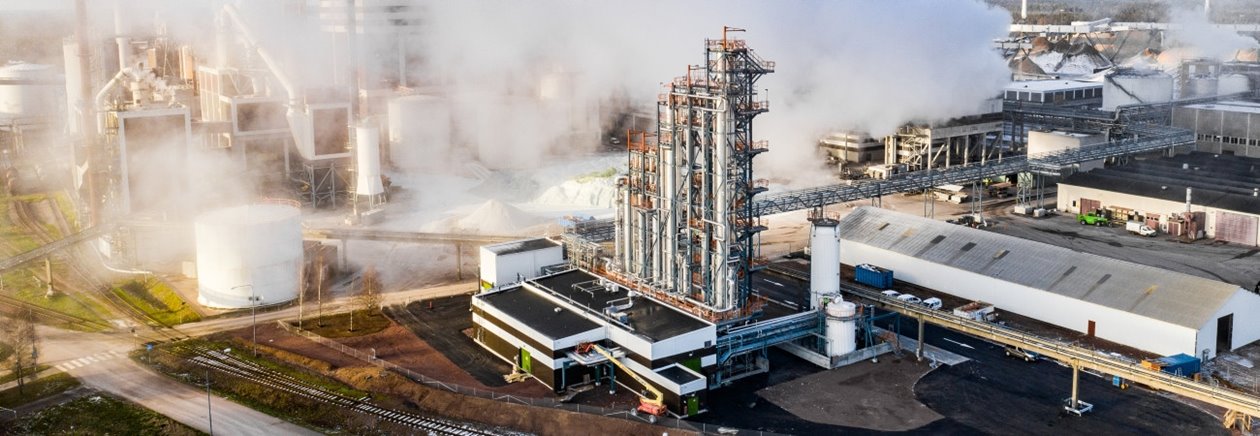WWF highlights efforts to reduce carbon emissions

Since 2015, Mönsterås municipality has recorded the highest cut in carbon dioxide emissions in the whole country. The WWF, which conducted the study, states that the decrease is partly due to the work at Södra Cell in Mönsterås to lower its carbon dioxide emissions.
WWF monitors the local development of emissions across Sweden. The survey shows that Mönsterås municipality has reduced carbon dioxide emissions by an average of 10.26 percent annually since the Paris Agreement in 2015. This is the best result among all of Sweden's 290 municipalities. A WWF press release highlighted Södra Cell Mönsterås' work to reduce carbon dioxide emissions as one of the reasons for the municipality's top ranking.
- We take our sustainability work and responsibilities very seriously. We are, of course, very proud that we contribute to reduced carbon dioxide emissions in our municipality and that the WWF has recognised this," says Patrick Hernäng, Head of Environment and Sustainability at Södra Cell Mönsterås.
Södra contributes to the transition to a fossil fuel-free society by producing green electricity, district heating, tall oil (which becomes biodiesel), biomethanol and more. Behind the reduced emissions are several initiatives and long-term work to develop Södra's sustainable production strategy.
- Södra Cell Mönsterås aims to be entirely free of fossil fuels from 2025.
Today, fossil-based oil is used to start and fuel our boilers. We have already reduced fossil fuel dependence in the recovery island by burning bark powder and switching to biofuel. We have made our own transport in the area fossil-free by switching to HVO (hydrogenated vegetable oil - renewable diesel for diesel engines)," adds Hernäng.
Emissions have decreased in most Swedish municipalities, but too slowly, according to the WWF. In 47 municipalities, emissions have also increased.
Sustainability permeates the entire operation at the mill in Mönsterås. At the turn of the year, the project "Sustainability in everyday life" was launched, which is overseen by the Sustainability department, with local support.
"The project is ongoing to increase the sorting and recycling of waste with the ambition to reduce the amount combusted and, among other things, to sort plastic and paper packaging. We are also reviewing how to increase sorting in control rooms and other staff areas," says Camilla Olofsson, Environmental Coordinator.
"Sustainability in everyday life" also covers initiatives for sustainable energy, sustainable innovation, sustainable production and consumption, combating climate change and ecosystems and biodiversity, adds Olof Hellström, Sustainability Coordinator.
Show all content for topic
Subjects: About Södra
